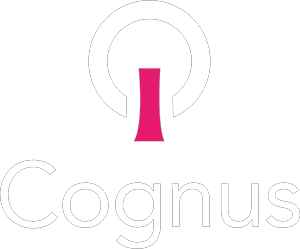Families
Occupational Therapy
Occupational Therapy Leaflet Who are we? Cognus Occupational Therapy Services (COTS) comprises of qualified Occupational Therapists and Senior Therapy Assistants. We are a large and diverse team with a wealth of knowledge and experience in supporting children and young people with developing functional skills required for learning and everyday tasks. What do we do? The […]OT works collaboratively with a Sutton SENDCo to Set Up a Resource Hub.
Jacqui Waller (Occupational Therapist, OT) has been working with the SENDCo at Westbourne Primary School and they have worked together to put a ‘Resource Hub’ together for the teachers and teaching assistants (TAs) to access. Westbourne Primary School supplied a variety of resources, as recommended by the OT (these were placed in activity kits to […]Read more on OT works collaboratively with a Sutton SENDCo to Set Up a Resource Hub.
Developing skills at home and at school to help prepare children and young people for adulthood
Howard, Occupational Therapist (OT) works mainly with older children at Cognus Therapies (year 9 and above). As part of the annual review process, Howard calls parents and carers to talk about how their child is managing at school, at home and in the community, including the ‘Preparation for Adulthood’ agenda and the skills involved in […]Supporting and Inspiring the Future OT Workforce
Hannah, a 6th form student from Cheam High School recently spent time with the Cognus occupational therapy (OT) team at Carew Academy to experience a day in the life of an occupational therapist. We provided a full day of activities, which included observing therapy sessions, supporting a child with learning in the classroom environment, making visuals […]Read more on Supporting and Inspiring the Future OT Workforce
Positive Response to OT Strategies
Diana, an Occupational Therapists (OT) who works with pupils in an autism base in Sutton tells us about a recent experience helping a child regulate his emotions, so he could access his PE lesson at school. “I have been working closely with one boy who has difficulty with regulating his emotions in the classroom. We […]Joint Working with mainstream schools to support emotional regulation
Occupational Therapy at Cognus Limited has provided an emotional regulation group within a mainstream school setting to help increase pupil’s awareness of emotions (e.g. worried, silly or angry) and to begin to recognise them in themselves and others. The Occupational Therapist (OT) used visuals, songs, videos and games to support the children to understand emotions […]Read more on Joint Working with mainstream schools to support emotional regulation
Occupational Therapist represents Cognus Limited at The OT Show at the NEC, Birmingham in November!
1During her time working at Oakfield Primary School, Autism Base (April 2019 – present), Shelly Fredericks (Highly Specialist Occupational Therapist) noticed a trend of fussy eaters. This led her to review the literature for a solution and adapt a ‘Messy Chef’ programme created by a colleague, Sudheer Kuttan (OT); based on her findings and research […]Occupational Therapy Week – 7th – 13th November 2022
Our OT’s want to share what occupational therapy is all about and why it’s important. Occupational Therapy is often overshadowed by other easier to understand professions, and so until everyone understands the life changing power of occupational therapy, OT Week is here to stay! Read some of our good news stories, which will be released […]Read more on Occupational Therapy Week – 7th – 13th November 2022
